Featured 1
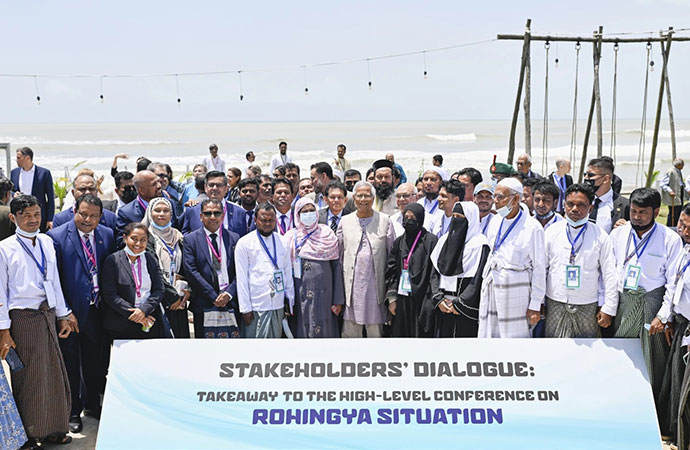
Photo: AP/UNB
The high-level UN conference on the Rohingya crisis, the first of its kind, held at the tail end of this year's General Assembly (UNGA80), sought to sustain international attention, assess conditions on the ground and discuss a concrete, time-bound plan for a sustainable resolution, including steps to ensure the voluntary, safe and dignified return of those who have been displaced, including the over 1 million refugees currently residing in the teeming camps of Cox's Bazar.
Speakers at the conference, including the representative of the UN secretary general, acknowledged Bangladesh has shown "remarkable hospitality and generosity", but Chief Adviser Muhammad Yunus had to remind the conference that the country is struggling to continue assisting Rohingya refugees, eight years into the escalation of the crisis. This was the second conference jointly organised by the interim government of Bangladesh in the space of roughly a month on the issue, following one in Cox's Bazar.
With aid declining, the CA warned that "the only peaceful option is to begin their repatriation" and described Bangladesh as a "victim of the crisis" forced to bear "huge financial, social and environmental costs". He urged the international community to "devise a practical road map for safe, dignified repatriation" and "exert effective pressure on Myanmar" to halt persecution and stabilise Rakhine.
Whether it produces the desired result remains to be seen of course, but the conference itself was well-attended, importantly including a number of Rohingya voices. The Special Envoy of the Secretary-General on Myanmar, the United Nations High Commissioner for Refugees, United Nations High Commissioner for Human Rights, ASEAN's Special Envoy on Myanmar, and representatives of Indonesia, Poland, Gambia, the EU, Turkiye (who also spoke on behalf of the Organisation of Islamic Cooperation), Malaysia, Japan and Thailand all spoke. They were mostly in alignment with the US and UK, whose representatives at the conference announced new pledges for the Rohingya Joint Response Plan, amounting to $60 million and $36 million respectively.
The division within the international community however, including the UN Security Council, was highlighted in the positions taken by Russia and China. The Chinese delegate emphasised that "for repatriation to truly work", dialogue between Myanmar and Bangladesh is essential, and underscoring the need to respect national sovereignty. The Russian Federation's representative likewise rejected Western pressure, and warned against exploiting the crisis for geopolitical purposes.
But the grim future that the Rohingya, as well as other ethnicities continue to face in Myanmar, was most bluntly articulated by the representative for Myanmar at the UN, who is aligned with the government ousted by the military junta in 2021. Pointing to the continued aerial attacks by the junta in the civil war into which Myanmar has descended, he said they overshadow any near-term prospect for the safe, dignified and voluntary repatriation of the Rohingyas. He also recalled the 2021 pledge of the National Unity Government, an alliance of forces opposed to the junta, to resolve the Rohingya crisis.
Yet it is also true that when the 2017 exodus took place, the Tatmadaw, as the Myanmarese military is known, was not in power alone. With Nobel Laureate Aung San Suu Kyi as state counsellor, civilians were sharing power. Unless the deeply engraved prejudice in Myanmarese society against the Rohingya is addressed, their plight will never truly subside. On this, the conference was disappointingly silent.






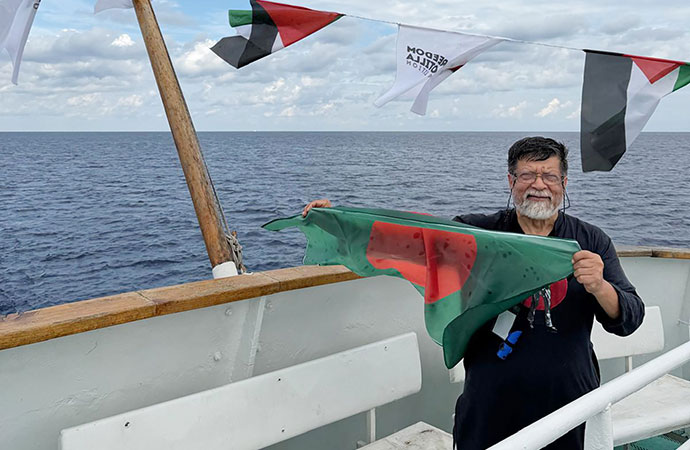
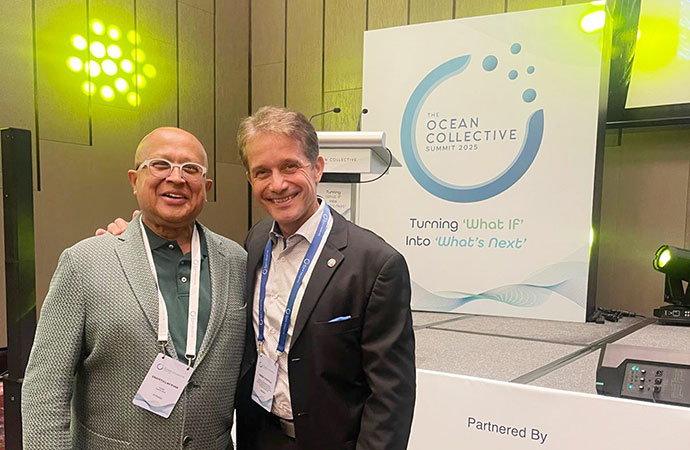
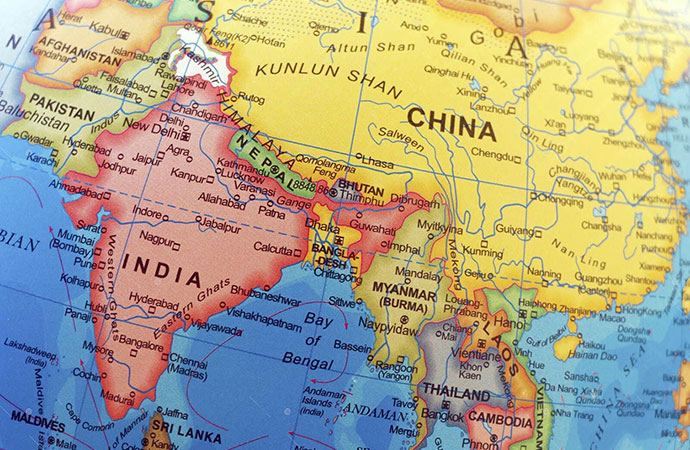
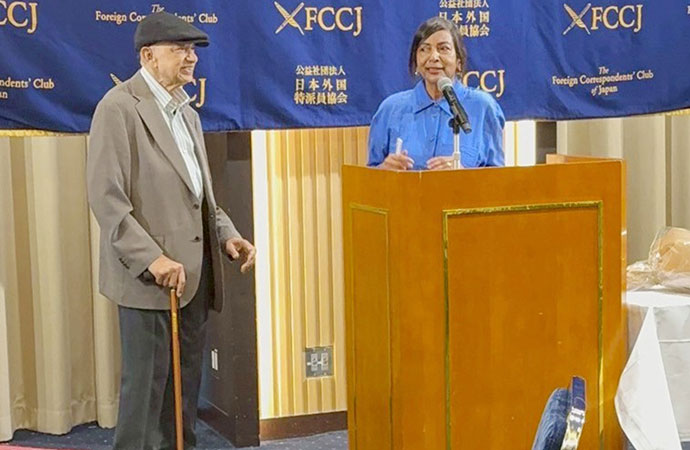
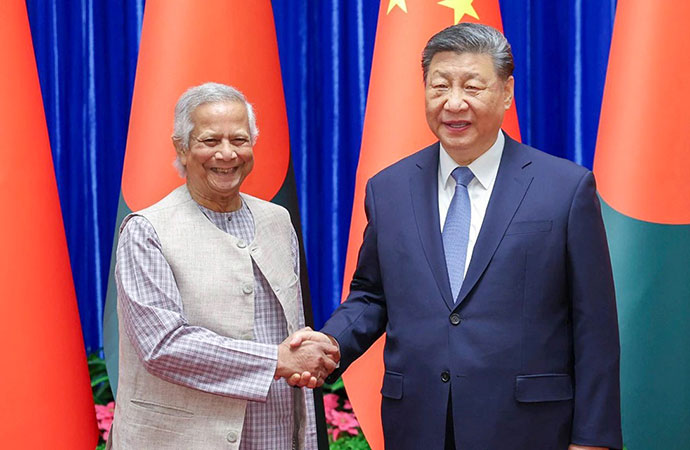




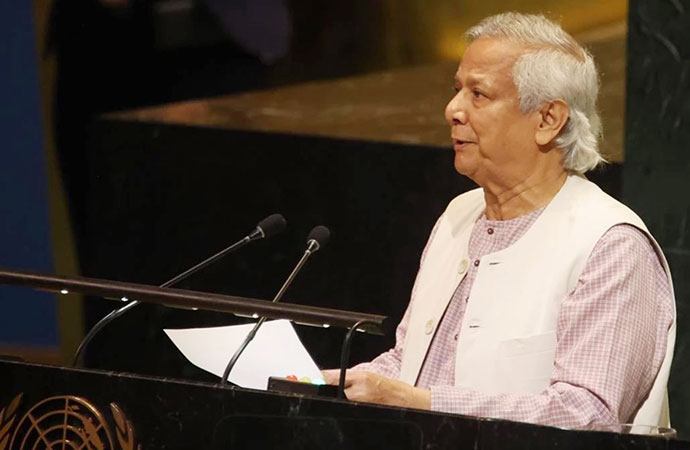









Leave a Comment
Recent Posts
Breakfast at Tiffany’s
Breakfast at Tiffany’s is an Old Hollywood film, released in 196 ...
Kalidas Karmakar’s ‘Holy War’ ...
Works of celebrated Bangladeshi masters, including Shilpacharya Zainul ...
All eyes on the Freedom Flotilla, as Shahidul Alam s ..
The disquiet in the Hills
Ocean Collective Summit 2025 Turning ‘What If’ into ..
Dhaka, Beijing should ‘deepen strategic partnership’ ..